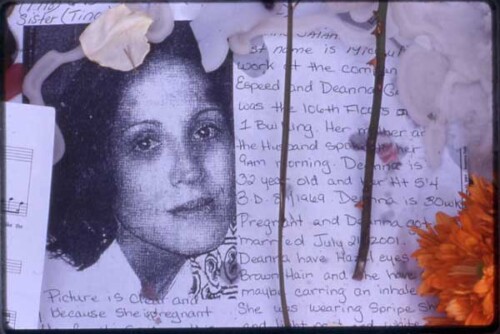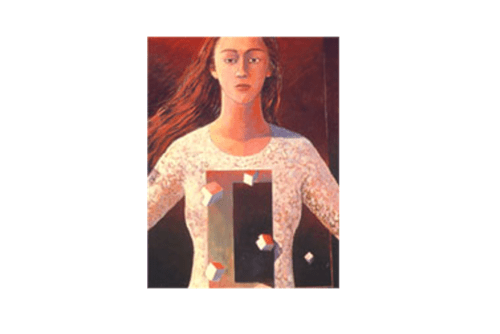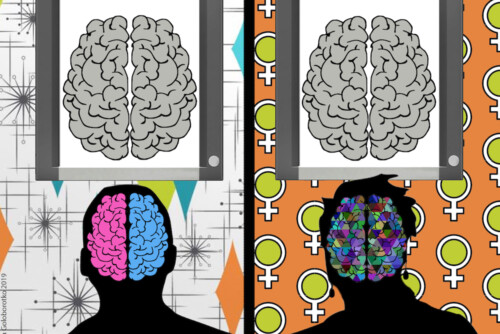On taking the theater seriously, on the Right and on the Left:
AP: Artists and art are not taken very seriously in this country. And I think they are by the Right. John Ashcroft recently put a drape over the Statue of Justice; at a press conference there was a dress over her breasts for him.
(laughter)
[. . .] and the NEA has been really eviscerated. And the Right takes art and its capacity to perform seriously – much more so than the Left. For them, art seems like elite, it’s a luxury. But clearly you don’t think art is a luxury, or just for so-called elites. How do we get the Left, such as it is, to take art more seriously? To me, it seems to be so vital in transforming our national life, or even a small microcosm.
ADS: Well, I agree with everything you are saying. I think that probably it does have to do with the smaller spaces in the beginning, to almost develop a sort of movement of people who develop an aesthetic of saying hard things, and who they’re saying them for.
One of the things we learned at the Institute, it’s like boot camp. We have this idea that if it’s art about social things, it’s not as good. The fact is, you’re doing double duty. Because why should the public trust you with the things that they’re serious about?
So you have to take it seriously. The fact is, there is someone in the audience here today, who I don’t know every well yet, but I invited her to come (inaudible), was saying to me (inaudible) when we met I thought that something she said was so interesting, which is that – theater is the place in society where it is acceptable to be somebody other than yourself, right?
Otherwise you’re in a hospital, right? And so there is something about even that, that is actually pretty dangerous. But we don’t think it’s dangerous about movie stars. If Gwyneth Paltrow plays a wife of Michael Douglas who is trying to murder her, we get scared by the thriller. But we don’t get worried about the fact that she’s pretending to be this thing, when she’s not. I think there is an act of danger there that we could work with.
AP: And maybe exploit that danger.
ADS: Well, in a way I do, by coming up to be somebody and that person could be in the audience. So I’m Al Sharpton and Sharpton was there. And A) he could be mad or angry with me. Or B) everybody could be more interested in watching Al.
(laughter)
They could come back and say, “I saw Al. I was looking at you [being Al].” I don’t know, but they were watching both things.
AP: You mentioned Clinton earlier. He’s working an audience. He was really brilliant and had the ability of working the audience, and figure out how to make contact. It’s something to behold. Clinton was great at working the audience. There is some guy now who is in office, who isn’t great at working the audience.
(laughter)




